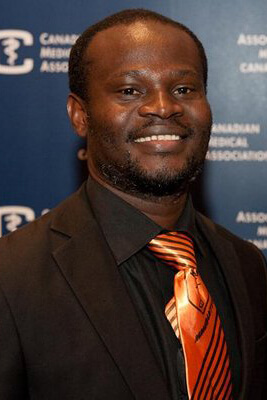During the campaign, Prime Minister Justin Trudeau, then the leader of the Liberal Party, promised to bring in 25,000 Syrian refugees by the end of 2015. Before the year ended, the Liberal government had reviewed its plans, hoping to bring in that number by the end of February.
With just under six weeks to go, I don’t think they’ll be able to achieve that.
This isn’t a failure on the part of the Liberal government. Instead, it should give them an opportunity to ensure quality rather than quantity.
Reevaluation after the Paris attacks
When the Liberal party won the election, what was on the mind of most Canadians was whether the Trudeau-led government would be able to bring in the number of refugees it promised. In the early days of his victory, some expected him to even expedite action on bringing in Syrian refugees.
However, after the Paris attacks that claimed more than 130 lives, some Provincial leaders started questioning the Liberals’ “haste”. Paramount among them was the Premier of Saskatchewan, Brad Wall, who asked Ottawa to halt their plans to bring in the refugees.
It should give them an opportunity to bring in quality rather than quantity.
In November, the Prime Minister announced a new deadline to bring the refugees, saying this change was not because of the Paris attacks, but because many of the logistical requirements had not been met.
Is it just the numbers?
Taking time to review the process was a good decision.
As the 10,000th refugee arrived last week, the government is hoping to achieve its target. I strongly believe this desire to bring in 25,000 refugees is misplaced.
I would rather see the government bring in a smaller number — say, the 10,000 refugees already here — and concentrate on them and their welfare. This is a better idea than bringing in 25,000 who might end up being more miserable than if they were in a refugee camp in Jordan or Turkey.
I’ve met refugees who have been in this country for more than a year and are still struggling to integrate. Others are still struggling to find jobs while even more are inundated by government-assisted loans. It is therefore laudable that the government has decided to waive the loans given to Syrian refugees under the Immigrant Loan Program. Similar additional measures must be taken.
This process must be handled in a meticulous way, rather than rushed so that the government can meet a very narrow political deadline.
The settlement agencies must also have their capacity rebuilt. Consistently in the past, these agencies have had their budgets cut in the face of an ever-growing refugee problem.
I have met refugees who have been in this country for more than a year and are still struggling to integrate.
For example, the Catholic Centre for Immigrants in Ottawa had its budget cut from eight million dollars to five. Right from the onset of the crisis last year, they’ve indicated their willingness to help, but with these cuts, they can only help to a certain extent.
Executive Director for the Catholic Centre for Immigration Carl Nicholson told the CBC in November, “Every single aspect for refugee response is underfunded at the moment.”
That is the reality on the ground. Most of these organizations get two-thirds of their funding from the federal government.
If the government indeed wants to bring in the numbers they’ve promised, they should think about funding these agencies — and not only for the next few months. When the refugees come, they’ll know these agencies and not the government. It’s these agencies that seek to help them feel comfortable, and they cannot do this without funding.
Refugees’ reluctance to come to Canada
One other issue is the reluctance of refugees to choose Canada as a destination. In late November, only six per cent of refugees approached by the UN on behalf of the government showed interest in relocating to Canada. This could also hamper the government’s ability to bring in more refugees.
Following the attacks in Paris, the federal government reviewed its criteria for eligible refugees. The government said only women, children and families would be allowed into the country. The CBC reported that the government said unaccompanied men would not be allowed in because of growing security concerns.
If government is worried about the number of Syrians who have shown interest, then obviously they should be willing to review the criteria. For instance what happens to a man who doesn’t meet the criteria simply because he lost all his family members in a war?
As of January 20, Immigration, Refugees and Citizenship Canada says 11,866 refugees have arrived in Canada since November 4 and 5,829 applications have been finalized and cleared, but are yet to arrive in Canada.
About 70 Canadian armed forces members returned last week from Jordan and Lebanon after helping with security checks, health and medical screenings and other forms of support. This suggests that the basic infrastructure for the processing side of the resettlement is now in place in the region.
While this might mean that we’re going to see more Syrian refugees applying to come to Canada, it’s better to miss the target of bringing in 25,000 refugees than to get it wrong. Let the government miss the target, take flack for it and get it right. If it must be done, it must be done well.
Eddie Ameh is a journalist based in Ottawa. He lived and worked in Ghana and the U.S. before moving to Canada. He is currently the secretary of the Ghana Association of Ottawa.
International Storyteller. Freelance Writer. Graduate, Carleton University Journalism School.





